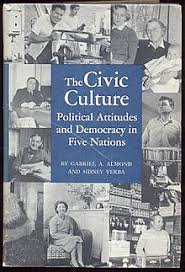Increasingly, the dilemmas facing politics in the United States if not worldwide are being portrayed as outcomes of polarization. It is an attractive topic for discussion, because there is undeniably a great deal of polarization, if defined as wildly different (polar opposite) viewpoints on one or more issues. Moreover, it seems to be tied to popular conceptions of the role of the Internet in enabling individuals to find support for their views online, even if extreme. Conceptions of echo chambers and filter bubbles are tied to this perspective. While I have argued that echo chambers and filter bubbles have been over hyped and under researched, I also can’t believe that polarization has not been prominent throughout the history of American politics.
So what is the problem? What has changed?
Perhaps it is the degree that proponents of different viewpoints have begun to take more ideological, righteous, or even sectarian positions. Their opponents are not wrong, they are seen and portrayed as bad if not evil.
What is surprising about this in the context of American politics is our history of being the model of a so-called ‘civic culture’ (Almond and Versa 1963: 8), defined by a culture based on “communication” and “consensus” in which diverse opinions are moderated by the structures and process of the political system, such as the two-party system and our system of checks and balances. This view was roundly criticized as simply a description of American politics post-World War II, as contrasted with less stable democratic systems leading up to the second world war, such as the Weimar Republic. However, there has been some face validity to this civic culture notion, at least up to the divisions surrounding the Vietnam War. Today, the idea of a civic culture seem ludicrous. 
So I don’t think we should be as focused on the dynamics of polarization, or a diversity of opinions, but more on the dynamics of this politically sectarian righteousness. Maybe it is the nature of the issues being considered, such as the right to life, the environment, and immigration, that have connections with deep ethical or religious principles. But the search for answers to this question will lead in different directions than the search for the dynamics of polarization on the issues of the day.
There is a thoughtful letter to the editor of USA Today by David Engen of Spokane, Washington, that focuses on the decline of civil discourse. I find myself in agreement with him and others who are focusing on the decline of civility in American politics as absolutely central to fixing or mitigating what seems to be a decline of our political processes. Yet even the discussion of civility in American politics has been steeped in claims that one or another sectarian group is to blame, such as a recent story about whether voters see the Democrats or President Trump as more responsible for a decline in civility (Wise 2018).
Are we lost in what I would call a post-civic culture?
References
Almond, G. A., and Verba, S. (1963), The Civic Culture: Political Attitudes and Democracy in Five Nations. Princeton, NJ: Princeton University Press.
Dutton, W. H. (2017), Fake News, Echo Chambers and Filter Bubbles: Underresearched and Overhyped, The Conversation, 5 May: https://theconversation.com/fake-news-echo-chambers-and-filter-bubbles-underresearched-and-overhyped-76688
Engen, D. (2018), ‘We’re all Americans. Let’s be civil, please.’, Your Say section of USA Today, 2 July: page 5A.
Wise, J. (2018), ‘Poll: More Voters Blame Trump than Dems for Lack of Civility’, The Hill, 3 July: http://thehill.com/homenews/395371-poll-more-voters-blame-trump-than-dems-for-lack-of-civility
[…] about claims that polarisation, exacerbated by social media, is undermining civility, arguing that polarisation is not the problem. As I argued then, the idea that people are becoming more extreme is not explained by them being […]
Another manifestation perhaps? Supporters of one party increasingly seem hostile toward the other party. Once upon a time, party identification was more rooted in positive feelings (identification) with one’s own party. See Pew Foundations results:
http://www.people-press.org/2016/06/22/partisanship-and-political-animosity-in-2016/